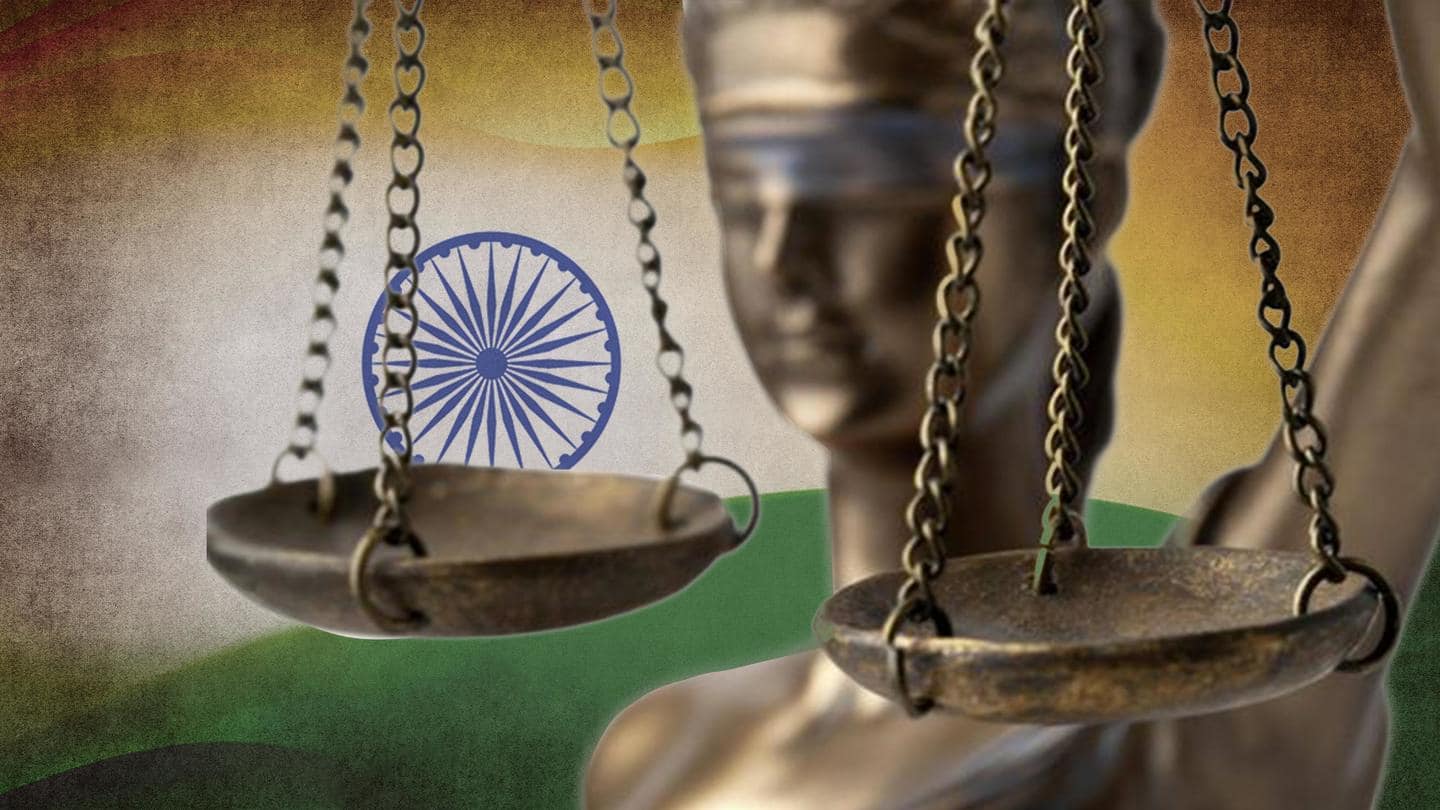
#NewsBytesExplainer: What's Uniform Civil Code that is heating Gujarat politics
What's the story
The Gujarat government has decided to implement the Uniform Civil Code (UCC) in the state ahead of assembly polls.
The announcement was made by the state home minister Harsh Sanghavi after the cabinet approved the formation of an expert committee on UCC to expedite its implementation.
Meanwhile, Aam Aadmi Party (AAP) chief Arvind Kejriwal accused the state government of bluffing on the issue.
Context
Why does this story matter?
Gujarat became the third Bharatiya Janata Party (BJP)-ruled state after Uttarakhand and Himachal to announce the implementation of UCC.
The issue has been at the center of the political narrative for over a century and it has been BJP's top priority and has been pushing for legislation in Parliament.
During the 2019 Lok Sabha elections, the party was the first to promise UCC implementation.
About
What is UCC?
The term "Uniform Civil Code" refers to a law that is the same throughout the country.
Currently, every religion in India has its own set of rules that it adheres to regarding matters like adoption, succession, marriage, and divorce.
People of all religions will be required to abide by the same law regarding these matters once the UCC is put into effect.
Regulation
In light of the Constitution
Article 44 of the Indian Constitution mandates the government to create a uniform civil code for all citizens of the country irrespective of color, caste, and creed. However, there is religious freedom for people
Currently, Hindu Code Bills govern marriages, divorces, and succession in Hinduism, Sikhism, Buddhism, and Jainism.
Similarly, Muslims are subject to Muslim personal law, which hasn't changed much since 1937.
Benefits
Proposed advantages of UCC
The UCC's proponents contend that discrimination against women is present in all religions' personal laws and that, if the UCC is put into practice, this discrimination will end.
They believe after the UCC is put into effect, many anti-women behaviors will no longer be acceptable in society
In accordance with secular values, UCC may also streamline personal laws and strengthen unity and nationalist sentiment.
Opposition
Counter arguments to UCC
Opponents of the UCC are most concerned that Hindu majoritarianism will be imposed on minorities under the guise of the UCC.
Article 25 of the Constitution is also cited against UCC, in which every Indian citizen has the right to profess his religion and to practice and propagate it.
They argue that if the UCC is implemented, it will interfere with people's religious freedom.
Inception
From the times of independence
UCC has been discussed in India since independence and it was debated in the Constituent Assembly.
The country's first President Rajendra Prasad and constitution maker Dr. Bhimrao Ambedkar were also in favor of similar law.
However, then PM Jawaharlal Nehru believed that UCC would not be good for the minorities emerging from the pain of Partition despite his favor.